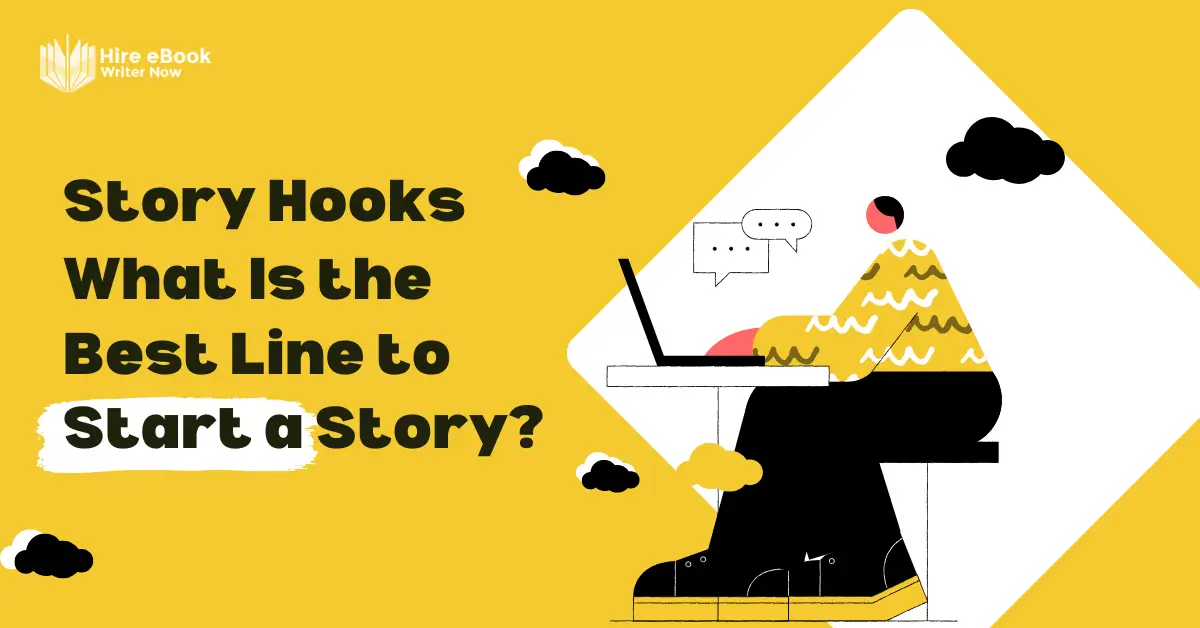So, you’re staring at a blinking cursor, fingers frozen above the keyboard, and your coffee’s gone cold. Welcome to the opening line dilemma, a rite of passage for every writer.
Here’s the truth: your first sentence isn’t just an opener, it’s your story’s doorman. It decides who walks in and who walks away. Whether you’re writing a fast-paced thriller or a quiet coming-of-age novel, knowing What is the best line to start a story is a survival skill in the world of writing.
Why That First Line Matters More Than You Think
Readers make snap decisions. According to Written Word Media, most readers decide within the first 30 seconds whether to keep going or not. And yes, your first line plays a massive role in that gut reaction.
A strong opening line:
- Creates curiosity
- Sets the tone and genre
- Offers a glimpse of the main character or conflict
- Makes a promise (emotional, thematic, or narrative)
If your story opens like every other amateur attempt—say, with “It was a beautiful day”—you’ve already lost half your readers. No pressure, right?
But don’t worry. You’re not alone in this. Every great author—yes, even your literary idols—has wrestled with this same monster.
Genre Matters: Tailor Your Hook to the Story You’re Telling
Let’s be honest: “She screamed” works for horror, but not for a heartfelt romance novel. Your story hook needs to speak the same language as your genre. Here’s a breakdown of what that looks like in action:
Mystery/Thriller
“The first bullet missed his head by half an inch.”
We’re thrown straight into danger. The tone says: buckle up, it’s about to get rough.
Romance
“If he showed up in that stupid green sweater, she’d dump him at the door.”
We’ve got tension, character, and voice—all in one snappy line.
Fantasy
“On the morning of her execution, Elira braided her hair with moonlight.”
World-building and stakes. That line practically begs you to keep reading.
Literary Fiction
“By the time I remembered my father’s face, it was already too late.”
Emotional, reflective, and loaded with meaning.
The point? Your hook doesn’t need to be loud. It needs to belong.
What Makes a Great Opening Line?
Let’s break it down to a few principles. Think of these as the three Cs of killer openings:
1. Curiosity
Leave a breadcrumb trail. Not enough to explain everything—just enough to pull the reader forward.
2. Character Voice
If your character sounds fresh, funny, broken, angry, or weird in the first line, readers will stick around just to see who they are.
3. Conflict or Imbalance
No one wants to read about a peaceful garden unless a dragon crashes through it on sentence two. Great first lines disrupt the status quo.
Real Examples That Nailed It
- “All children, except one, grow up.” — Peter Pan
- “I write this sitting in the kitchen sink.” — I Capture the Castle
- “The man in black fled across the desert, and the gunslinger followed.” — The Gunslinger
What do these have in common? They immediately create intrigue. You want to know who, what, and why. And that’s the hook working its magic.
Want a Shortcut? Start with These Proven Formats
You can absolutely build from templates, especially if you’re new. Here are a few plug-and-play formats you can customise:
- The Shocking Statement: “I killed my best friend last summer.”
- The Sudden Action: “The house exploded before she finished her tea.”
- The Voice-Heavy Confession: “Let’s get one thing straight: I didn’t mean to steal the goat.”
Choose your format, tweak it for your character and genre, and boom—you’re already better off than “Once upon a time.”
Beyond the First Line: Make the First Page Worth It
Okay, your hooks landed. Now what?
The first paragraph and the first page need to maintain the momentum. That means giving readers:
- A hint of stakes
- A sense of setting
- At least a glimpse of character motivation
And please, for the love of plot, avoid info-dumps. If you’re not sure how your first pages are reading, working with a seasoned poetry editor for Hire (or fiction editor, depending on your genre) can really help tighten the pacing and rhythm. Many first-time writers don’t realize that editing isn’t just about grammar—it’s about flow, voice, and staying readable.
So... What Is the Easiest Novel to Write?
Ah, the million-dollar question. The easiest novel is the one that’s closest to your heart and brain. For some, it’s a quirky rom-com. For others, it’s a slice-of-life story set in a small town. But here’s the twist: “easy” doesn’t mean “effortless.” It means familiar.
Starting with a story you already know something about—whether that’s emotionally or experientially—is always a smart move. Want help organizing your thoughts or turning your scribbles into structure? That’s where teams like Hire eBook Writer Now come in quietly, helping you write, polish, or ghostwrite your book while you focus on telling your truth.
The Best Line Is the One That Gets Them to the Next One
If there’s one thing to take away from all this, it’s this: what is the best line to start a story depends entirely on your reader, your genre, and your tone. There’s no single right answer—but there are plenty of wrong ones. Start with curiosity. Aim for tension. Keep it real.
And if you ever feel stuck, there’s no shame in getting a second pair of eyes. Whether it’s a trusted critique partner or a poetry editor for Hire, getting feedback early can save you from wandering into the dreaded saggy middle later.


